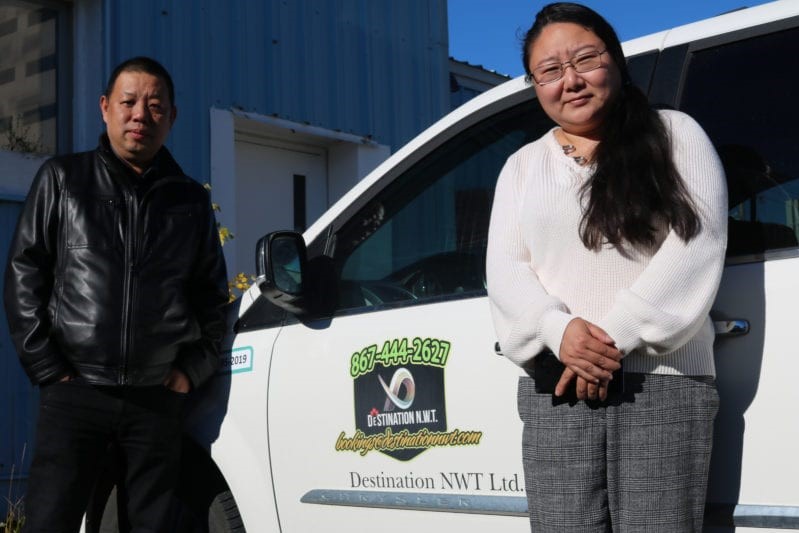A Yellowknife business owner has responded to the pandemic by opening not one, but two businesses.
Luna Liu is the owner of Destination NWT, a tourism operation that offers travel packages for English and Mandarin-speaking travellers.
But like almost all operators in the tourism sector, the Covid-19 pandemic flattened her business activity.

Simon Whitehouse/NNSL photo
“We stopped all the tourism business on March 15. No income from (then on),” said Liu.
Covid forced her to think about how she could survive the economic downturn as the NWT entered the lockdown in March and Covid restrictions cut off hopes of a quick recovery in tourism.
“Before I was very busy with international tourists. I wasn’t thinking about local marketing. I had to think about what I could do,” said Liu.
One idea was to tap into the ‘staycation’ market, and on Aug. 1 she opened up 7th Aurora Lodge for local residents to rent. The lodge on Madeline Lake can accommodate up to 10 people at once.
It proved successful and was fully booked for August. Bookings for September and October are already filled as well.
“I don’t think the rental fee is very high. It’s reasonable. But I only want to get the rental fee to cover my mortgage, it’s enough. I don’t really want to earn a lot from the locals. Just to cover my costs, including water and housekeeping and maintenance.”
Not being the type of person to sit still for long, and with more free time due to a lack of tourists, Liu turned her attention to a culinary idea that had been on her mind for a long time.
“She feels the food selection is still limited in Yellowknife and she wanted to try something on her own,” said her husband Liang Chen.
Her initial plan was to open a food truck serving spicy Szechuan and traditional Chinese cuisine. But she kept experiencing delays in receiving the government health permits for a food truck and so she opted to open a commercial kitchen for a delivery service instead.

image courtesy of Luna Liu
The permits for that came through, and last weekend her company ABC Food Services fed its first batch of 20 hungry customers.
People place their orders one day in advance and the meals are cooked in her commercial kitchen by professional chef Simon Chai, then delivered in containers to customers’ doors.
“The idea is to use local ingredients but in the traditional Chinese way to cook it,” said Chen. “And to be as authentic as she can be, but definitely not something you would get at a buffet. Everything is cooked to order so when she does the delivery it should be hot to the touch.”
But Liu and her husband stress that while it might be exciting to see more businesses doing things in the city, their earnings from the lodge and food delivery doesn’t come close to making up for the losses from their main tourism business.
“She’s keeping everything reasonable just to make sure that she can pay the bills and then still provide a service to locals. It’s just to keep busy and stay afloat,” said Chen.
Although the pandemic gave his wife the opportunity to finally pursue her food business, for Chen there is no silver lining to the effects on business, and he said the worst thing about it is not knowing when it will end.
“We actually have a lot of interest from from travel agencies and from Canadian and international travellers who want to start booking. And we have some VIPs from other countries as well that want to come,” he said. “But we can’t give them any certainty. I think that’s actually worse than knowing your losses just because where is the hope of restarting? It’s constantly putting people off. The people that want to come here and enjoy our activities, but we have to tell them, ‘You can’t, and we don’t know when you can.’”
Still, the restrictions and difficulties of the pandemic have accelerated some business trends that were just waiting for someone like Liu to jump on.
“The pandemic kind of taught us two things: I don’t think she’ll ever evolve to a full sit-down restaurant and I think the food truck and the delivery business actually might become a norm for quality meals. They’re convenient, and because of the reduced overhead costs of not having to pay a lease and then servers, we can reduce the food costs quite a bit more than if it was served in a restaurant. That’s something the pandemic taught us and we’re trying to explore if there’s anything there for us,” Chen said.

